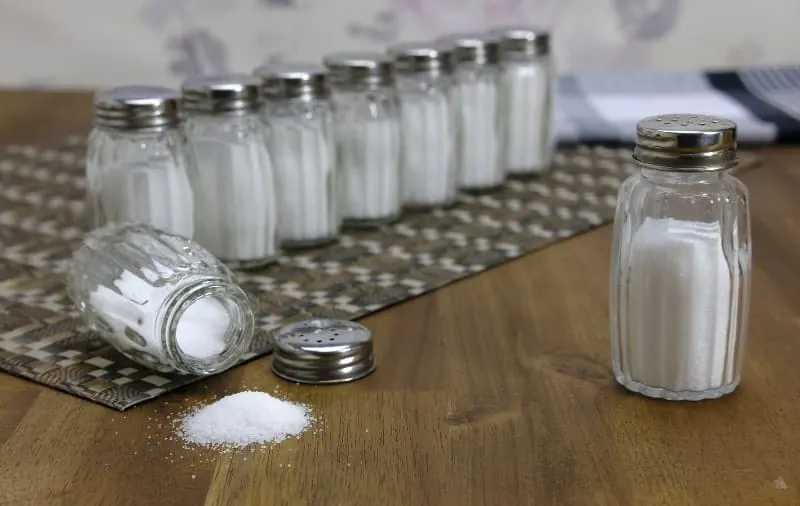There are plenty of bakers that are extremely careful when handling salt and yeast and do everything they can to avoid combining them too early.
Plenty of people have an idea in their heads that if salt even touches the yeast too early in the bread-making process, it’ll just stop working, but that’s not really the case.
It’s not a bad habit to keep the salt separate from the yeast, but it’s not always necessary.
Salt can kill yeast, but only in significant amounts. Small amounts of salt will not kill yeast, but it will slow its growth, leading to a slower rise in the dough. Salt pulls moisture from yeast, so if it’s left for too long it can cause stress on the yeast cells and cause them to break down.
It’s only in fairly extreme cases where salt can kill the yeast. When there’s an excessive amount of salt or when the salt has been sat in water with yeast for too long.
So, unless you’re combining yeast and water with a lot of salt and leaving it for a while, your yeast is going to do the job at rising your dough.
How Does Salt Affect A Dough’s Rise?
If you’ve ever forgotten to put salt in your dough, you’ll know how quickly it rises without it. It’ll rise much faster and get considerably bigger than dough with salt, but it’s always very bland.
Salt is added to the dough for flavor, but it can do so much more for the texture and rise. A normal amount of salt won’t kill your yeast, it’ll just control its activity.
When you add an appropriate amount of salt, it slows and regulates the yeast activity, which leads to a better rise and more even gas bubbles. This helps the structure of the gluten stay strong and the texture of the bread is better overall.
So salt slows the rate at which dough rises, but not in a bad way. It’s there to help keep a more uniform crumb in the bread as well as making it taste great.
When Can Salt Kill Yeast?
Even if you accidentally combine your yeast and salt for a short period of time, you’re almost definitely not going to notice a difference in your dough’s rise or the end product.
A lot of people make the ‘mistake’ of combining their yeast and salt, but do you know what happens? The dough still rises.
You see, it can take a while for that salt to ‘kill’ your yeast. You’d have to combine the two ingredients and wait for the salt to break through the yeast and damage the cells before it even comes close to dying.
The only reason your yeast would stop working is if you covered the yeast in salt and left it there for a while. Chances are that you’re not going to do this, so it shouldn’t be anything to worry about.
Of course, it’s not a bad thing to get into the habit of keeping your salt and yeast separate, but it’s not going to be the end of the world if you accidentally combine them.
To Sum Everything Up…
Yes, salt can ‘kill’ yeast, but it’s probably not going to in the majority of cases.
Even when the two are mixed together for a short period of time, the yeast is still going to become active and rise the dough, so it’s nothing to worry about.
All salt does in bread is slow down the rate of yeast activity so the dough rises more evenly and better overall.
Stop stressing out about combining them and continue making great bread.

